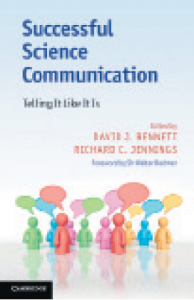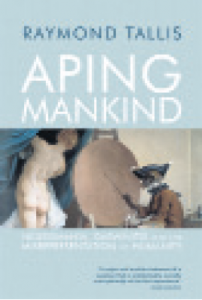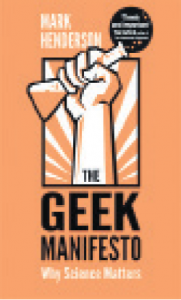WEDNESDAY, 3 OCTOBER 2012
In 1985 the Royal Society produced a report on the Public Understanding of Science. It marked a significant turning point in the interaction between scientists and the public. Successful Science Communication explores the repercussions of this report over the last 25 years; the careers that it has nurtured, the challenges that have been faced and the debates that rage on. Through case studies of science media events, particularly around Cambridge, and discussions of the evolving nature of the world press, it introduces scientists to the rest of the world, and provides numerous means by which any modern researcher can share their interests with the public. Each chapter is individual, free standing and carefully structured, making this a useful reference for anyone new to making science accessible, although this can mean that similar points are covered many times throughout the book as a whole.Most importantly, Successful Science Communication investigates the way that people interact with science and the information that they most desire from scientists. Science communication is not about presenting basic scientific knowledge and expecting people to use it. It is a dialogue that highlights the relevance of science to society and provides a deeper understanding of the scientific method. Jonathan Lawson
Aping Mankind – Raymond Tallis
In his neuro-philosophy piece Aping Mankind,Raymond Tallis is not afraid to speak out against the ideology which pervades modern thought on human consciousness. Taking a non-deterministic view, he launches a crusade against the phenomenon he calls neuromania: using neuroscience to explain every aspect of human nature. He attacks enterprises such as neuro-economics and neuro-politics as well as basic neuroscience for their overzealous use of brain imaging to explain what we are thinking and why. Without having to reach to theology for support, Tallis points out many of the classical problems of a deterministic view on consciousness. For this reason, the book is an excellent starting point for anyone interested in neuro-philosophy. Tallis argues that primate intelligence has been greatly exaggerated and that there is a huge and unexplained gap between the abilities of humans and animals.Boldly, he goes further and suggests his own ideas about how human consciousness may have evolved. Whether or not you buy into all of Tallis’ ideas, he shows that there are troublesome issues with the way science approaches human nature. Being both a clinician and philosopher, Raymond Tallis presents his case in an elegant manner, while being tenacious and sharp in his arguments. Ali Ghareeb
The Geek Manifesto: Why Science Matters - Mark Henderson
The geek manifesto begins as a wry commentary on the way the British Government handles science policy, but then transitions into a passionate rallying of the troops. As Henderson suggests “it is time for the geeks of the world to unite.”
Citing numerous (and often hilarious) examples of times when policy has let scientists down, Henderson argues that it is not just the fault of politicians that the government has failed to keep up with the advances of science. Scientists have always shied away from involvement in politics. We live in a country where only one of our 650 MPs is a scientist and even at the undergraduate level, arts students dominate student politics. Henderson proposes that it is now time to redress this balance and for scientists to take action and stand up for the issues that matter to them. The Geek Manifesto is a refreshing take on an important issue, and Henderson makes a compelling argument; it is time that scientists stopped complaining about the state of science policy in the UK and decided to do something about it. Not bad considering Henderson himself has a degree in history. Fiona Docherty



